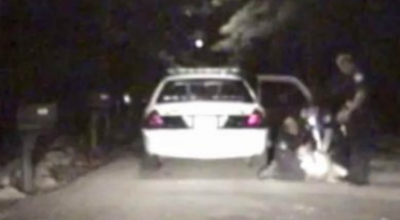
Police are so boldly violent against members of the public because they know they can get away with illegal activity.
By David Tulis / NoogaRadio 92.7 FM
What assures them and gives them comfort is knowledge of how thick the complexity trap system of courts is, and how difficult to penetrate and how few people go to trial. Only about 3 percent or 4 percent of cases go to trial, the evidence and the accusations are little examined.
The lack of close examination of evidence and charging instruments subsidizes police officers’ aggressive acts and perjury. Not only that, but the longstanding doctrine of qualified immunity offers near perfect protection — a kind of absolution and forgiveness in advance of the sin.
I have just reviewed the filing my daughter Abigail made in her case coming up for a trial in Smyth County, Va. She is in the Netherlands and will not be attending physically; she has submitted a motion to dismiss and exhibits to have her case argued in circuit court entirely as a matter of law. She is demanding dismissal of her “reduced charge” conviction of improper driving, and demanding that the judge throw out the Virginia uniform summons as unconstitutional. Her trial date is today after a Feb. 27 bench trial in district court in Marion.
If you will read the last part of her draft brief at this link, you can see the overall picture of warlord policing operating in rural Virginia counties. The same plague afflicts Tennessee counties great and small, even here in Hamilton County.
Police operate against the citizenry on custom and usage. Not too many people pay attention to the legal niceties of law that cops and deputies are supposed to “enforce” and also to “obey.” The lawyers don’t pay attention to abuses I have reported here. Defendants don’t know the law. The police and deputies have a summary knowledge of it and don’t make a habit of reading law or studying it for their jobs, though they are “law enforcement.”
Police abolition, law enforcement reform and legal reform of the kind proposed by John Gentry in the remonstrance project are blessings from God. They will be withheld from us as long as God’s people in any area reject His commandments and His law. If they continue to do so (the sin is called antinomianism) as they have for a 100 years, they will not get the blessings that a respect for manmade law would bring and a like respect for God’s commands, summarized under the concept of equity.
The work Abigail does in her reckless driving case is an example of how to think and act when being prosecuted. The brief I post at the link above is 10,000 words.
Getting to essentials
Her defense goes to the essence of what every defense in a criminal matter should consider.
Her arguments are the proper fundamental ones, and I offer them as a model for others in learning about law and their own defense.
The gaps in many, many state prosecutions in Tennessee and elsewhere are a mile wide. In her case, which is typical, I’d say, the state makes no demands and claims no grievance for which relief might be granted in court. The state, let me suggest, routinely prosecutes cases insufficiently and ineffectively.
To understand the state’s case against you, you start by reviewing the law, word by word, line by line. Then, you have to look at the court cases that explain how the law has worked out in the courts. The cases will give you the proper questions to ask of the witnesses. You distill the essential elements of the crime. Go online to find the cases by keywords that explain how the essential elements are proven.
For the state to convict you, it must allege and prove all the essential elements of the crime. Keywords: Essential element.


